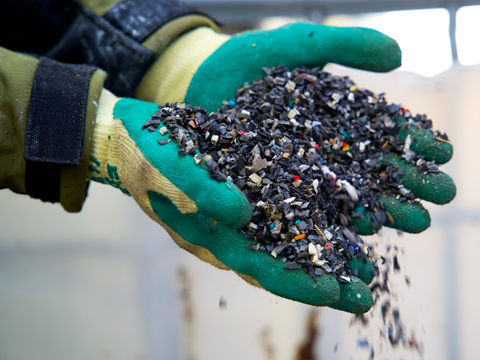
Chemical company INEOS Inovyn has launched two PVC pilot plants at its Jemeppe-sur-Sambre site in Belgium, hoping to accelerate recycling technologies for PVC, which is not widely mechanically recycled today.
The move is part of a strategic ‘Project Circle’ initiative, which aims to commission an industrial unit with a 40KT recyclable capacity by 2030.
The company states that across Europe, around 30% of PVC waste is currently mechanically recycled. Project Circle targets the remaining waste by developing new technologies including dissolution, pyrolysis and gasification.
The new PVC pilot plants are said to draw on VinyLoop’s technology experience from 2002 to 2018 and are designed to upgrade dissolution technology that supports the recycling of complex PVC waste, including legacy additives.
INEOS Inovyn says that industry wide collaboration plays an important part of Project Circle and, to support this, it has joined two Belgium consortiums.
The first, ‘CIRC-PVC’, covers the entire chain, from collecting PVC waste at construction-demolition sites to the production of rejuvenated PVC not containing legacy additives. It includes industrial partners and experts Entreprises Générales Louis Duchêne, Vanheede Environmental Logistics, ROVI-TECH, ECO-DEC, Avient Corporation’s Belgium site, Centexbel, and the University of Liège.
The second consortium, ‘DISSOLV’, aims to drive the development for PVC waste from flooring, carpets and tarpaulin applications, which cannot be recycled today, due to the presence of textile fibres and legacy additives. Its members include Beaulieu International Group, Sioen Industries, Empire Carpets International and ExxonMobil.
Geir Tuft, CEO of INEOS Inovyn, said: “PVC is one of the most recycled polymers in Europe, but reaching full circularity remains a complex challenge for our industry. Project Circle is an ambitious step in developing advanced new solutions and supporting Europe’s green transition.”
Luc Castin, sustainability manager at INEOS Inovyn, added: “We need a thriving and competitive European plastic industry that allows us to increase investment and innovation in circularity and decarbonization. The financial support of the Walloon and Flemish region to the consortiums are vital to achieve this.”
In related news, investment company Taranis recently announced its investment of €10 million into cleantech company Pryme, which converts plastic waste into valuable products through pyrolysis technology. Pryme has apparently developed a new cost-effective approach to pyrolysis that allows used plastic to be recycled with a high conversion rate on an industrial scale, and with a lower carbon footprint.
In a joint development agreement, Dow and P&G have announced their aim to create a new recycling technology that converts hard-to-recycle plastic packaging into ‘near-virgin quality’ recycled polyethylene with a low greenhouse gas emissions footprint, with each company contributing its own patented technologies and knowledge to develop a dissolution process. The new technology will focus on polyethylene and post-household plastic waste, particularly hard-to-recycle packaging structures like rigids, flexibles, and multi-layer designs.
If you liked this story, you might also enjoy:
How are the top brands progressing on packaging sustainability?
The ultimate guide to global plastic sustainability regulation














No comments yet